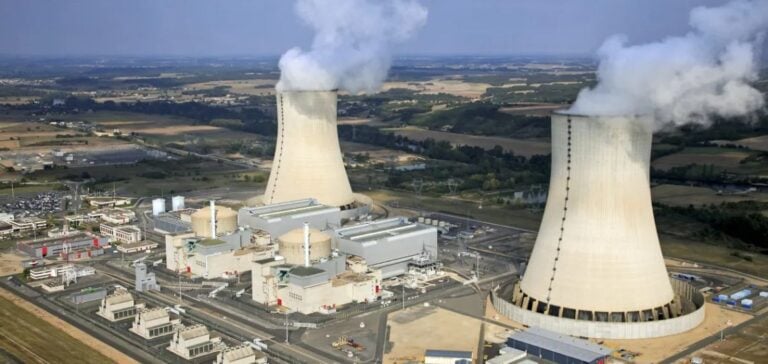France achieved a major milestone in the European energy market in 2024, with net electricity exports reaching 89 terawatt-hours (TWh). This figure, shared by Thomas Veyrenc, Executive Director of Economy, Strategy, and Finance at RTE, far exceeds the previous record of 2002, solidifying France’s role as a key energy player in Europe.
Significant improvement in nuclear production
Nuclear production was pivotal to this success. Following a historic low of 279 TWh in 2022, EDF (Électricité de France) progressively restored its capacity, reaching between 358 and 364 TWh in 2024. This recovery was supported by the commissioning of the Flamanville EPR in December, enabling France to bolster its energy supply in the market.
The role of renewable energies
In addition to nuclear, renewable energies contributed to this momentum. Exceptional hydropower production, along with the continued expansion of wind and solar power, helped diversify energy sources and meet regional demand effectively.
Exports to strategic European markets
Key trading partners benefited from these massive exports. Germany and Belgium recorded a combined net surplus of 27.2 TWh, followed by Italy (22.3 TWh), the United Kingdom (21 TWh), Switzerland (16.7 TWh), and, to a lesser extent, Spain (2.8 TWh). These cross-border flows reflect France’s competitiveness in the European energy market.
Challenges in domestic consumption
However, these export achievements also highlight a structural weakness: domestic electricity consumption remains low. The necessary energy transitions to replace fossil fuels with electric solutions are progressing slowly, hindering long-term decarbonization goals.
With stagnant domestic consumption and growing export capacity, France will need to balance its priorities to maintain its market position while addressing energy transition challenges.






















